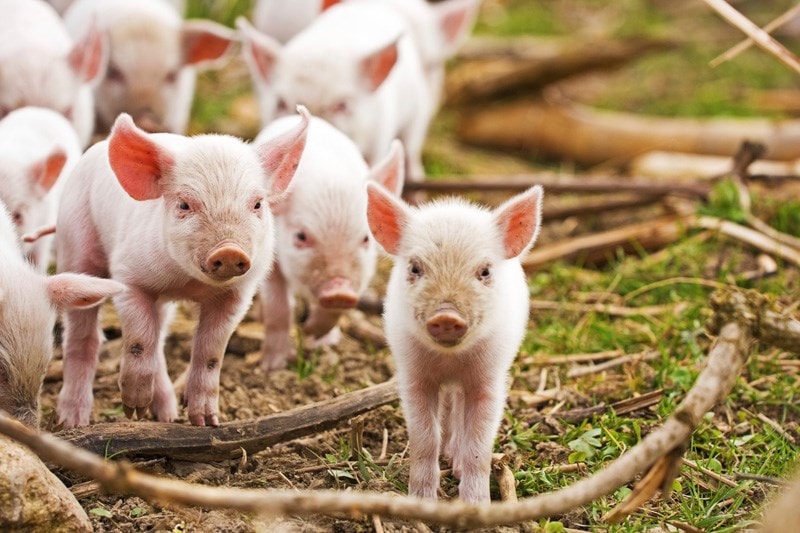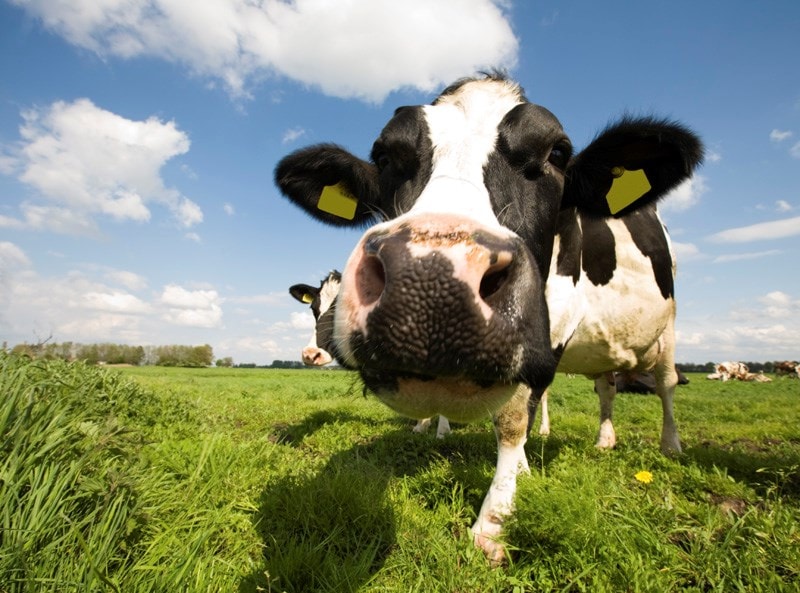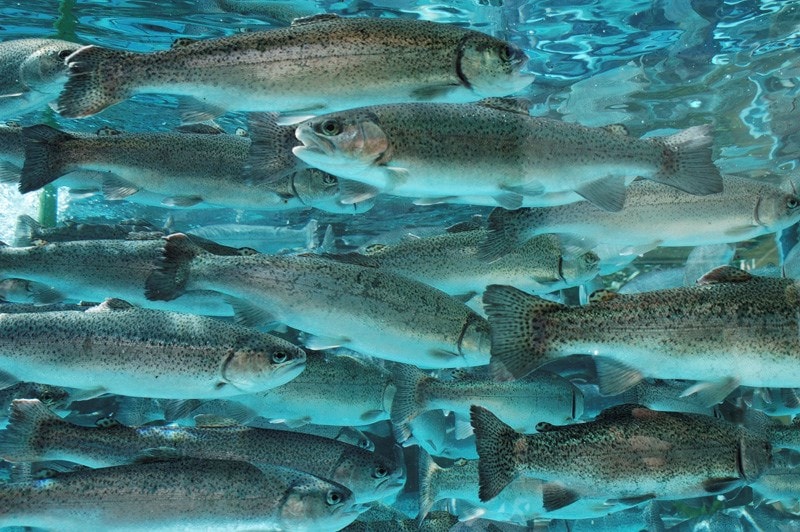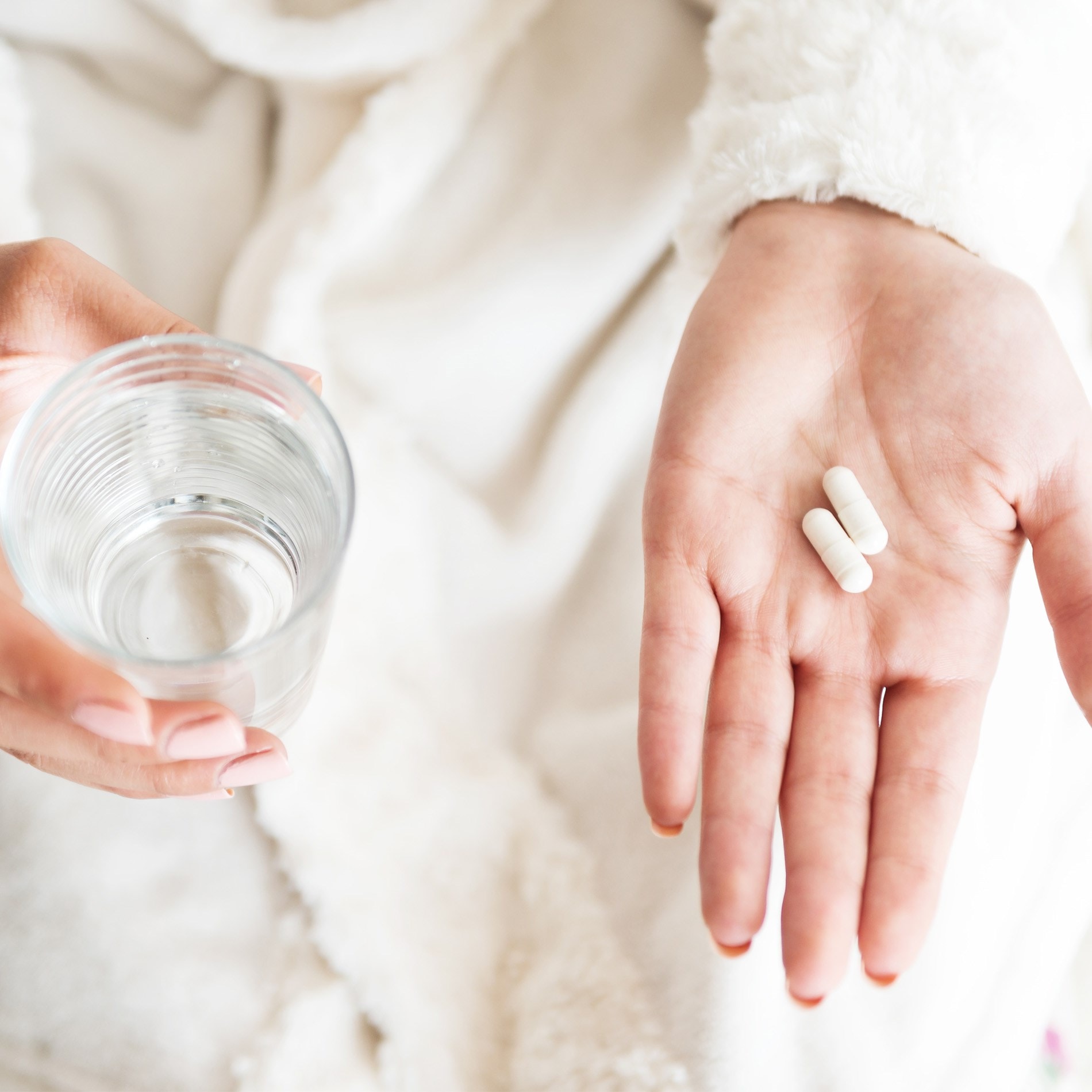Probiotics for Animals and Farming
Probiotics are fast becoming a popular addition to most people’s kitchen cupboards. But did you know that probiotics are also now popularly used in farming and agriculture? This is true for our furry friends at home as well, with a whole separate industry for pet probiotics which we will talk about later.
Within this article:
- Industry Members get Enthusiastic
- Host Specificity of Microflora: Is this the start of Tailored Probiotics for Agriculture?
- Probiotics and Hygiene in Agriculture
- Probiotics and Sustainable Animal Production
- So can I use probiotics for my pets?

We humans take probiotics for a balanced gut bacteria. As part of becoming balanced, the healthy bacteria are thought to prevent pathogenic bacteria from establishing itself in the gut and from causing intestinal permeability or illness. Probiotics are also thought to support our immune system, as some 70% of the body's immunity is based in the gut. Is this the reason why probiotics are given to animals and used in agriculture? In time with the UK's Meat Free Week, we thought we would investigate.
Industry Members get Enthusiastic
On 12 November 2014, at an animal conference in Hanover, Germany, Industry members and the scientific committee of the European Probiotic Association (EPA) discussed the potential of probiotics for sustainable animal production - with a growing emphasis on not just the scientific side of ‘zootechnical performance’, but also animal health and welfare.
Dr Gérard Bertin, Secretary General of EPA, and Professor Joaquim Brufau, member of the association’s Scientific Committee gave an overview of new trends in probiotics in agriculture, the use of which is increasing in occurrence around the world. The research in this area is increasing with the main projects concerning swine, beef and dairy cattle, aquaculture and poultry.
Up until now, the main use for probiotics in animals has been for performance enhancement. This is now shifting however, towards health and welfare issues such as immune-modulation, heat, stress, animal behaviour, reduction of pathogens carriage and quality of food products. As explained by Professor Brufau, this is in line with the bigger picture of probiotic research in areas of immunity, mucosa integrity, gastrointestinal tract function and health status, with a growing understanding of the methods of action.

Host Specificity of Microflora: Is this the start of Tailored Probiotics for Agriculture?
The EPA awarded Dr Steven Frese a prize for his innovative research project on the evolution of the host-microflora interaction. Essentially even though we know that the digestive microflora plays a key role in health (and our microflora is increasingly being seen as almost an organ in itself), less is known about how evolution shaped the symbiotic relationship between host and bacteria. Dr Frese looked at the molecular basis underlying this host specificity and found that for example, strains of L. reuteri isolated from different animal species expressed host specific genes. Fundamentally this shows that it is possible to harness certain strains to optimise desired outcomes, such as antimicrobial or anti-inflammatory properties, in future probiotics. This is along a similar line of research as for humans.
Probiotics and Hygiene in Agriculture
One of the most popular uses of probiotics in farming is in cleaning products that are used in the animals' living areas, as well as on their skin. The idea behind this is that, as in a similar way to in the human gut, the probiotic bacteria combat the pathogenic, unwanted bacteria in a sustainable way. This has evolved as a method of hygiene to avoid excessive use of antibiotics and disinfectants which has led to increased resistance in some pathogenic strains such as MRSA. Probiotics can be used like this in a myriad of ways such as improving composting techniques, enhancing farm slurry treatment, increasing soil fertility, odour control, improving water quality and fish health.
An example of this is 15 years of research at University of Idaho and Washington State University where scientists have found that one particular strain found in the microbiome of farmed trout can combat Coldwater Disease; a disease which can wipe out whole batches of trout and require antibiotic treatment. These probiotics work by secreting a toxic protein, which does not harm the fish but does kill the Coldwater Disease organism, Flavobacterium psychrophilum.
If you find the topic of bacteria in our environment and how this affects your health interesting then you may like to read Kathy's blog on Gut bacteria, allergies and probiotics on BBCs Horizon

Probiotics and Sustainable Animal Production
So how can probiotics help with issues of sustainability of animal production, health and welfare as well as the reduction of use of antibiotics? Dr Frese’s project, suggests for example that the anti-inflammatory property of L. reuteri could improve resistance to disease. This particular strain produces a high level of an antimicrobial called reuterin could also help reduce animal antibiotic usage which is high on the agenda both for animal welfare, the issues of antibiotic resistance but also for reducing the incidence of antibiotics in the food chain, ultimately protecting humans as well.
The research and use of probiotics with animal welfare and agriculture is wide ranging and fascinating. Here are a few examples:
A long term research project by two French institutes has resulted in the finding that feeding salmon probiotics has ‘shown to have significant impact on fish health and growth and thereby the economic performance of fish farming.’
A recent study at the University of Utah found that Woodrats had lost their natural ability to eat toxic creosote bushes after antibiotics killed their gut microbes. However, Woodrats that had never eaten the plants were able to do so after receiving faecal transplants with microbes from creosote-eaters. This amazing study confirms what biologists have suspected that it’s not just liver enzymes that help with digestion but also gut bacteria. This study suggests that endangered species may lose the diversity of their gut microbes when bred in captivity which suggests that then they may not be as able to survive when released in their natural habitat. However, a thought that is a little closer to home is that livestock are often fed antibiotics to promote growth; does this start to impair their ability to eat and digest toxic plants in drought ridden pasture grass?
Probiotics can also be used on plants. Some recent research at the University of Washington found that a microbe found in cottonwood trees have boosted the ability of willow and lawn grass to be able to take 25-40 percent of a nasty industrial pollutant called phenanthrene than untreated grass.
There has even been research on whether probiotics can be used to help an endangered species of frog become immune to a fungus it develops when in the wild.
At the animal conference in Germany it was agreed by the experts present that probiotics can help address three main aspects of sustainability – societal such as animal welfare and food quality, economic such as profitability and environmental such as methane production. All of this can be done with great scope for new discoveries and innovative approaches. And the best part of this is that it's all using mother nature's own creation.
For another example of innovation with bacteria, read my other blog post on some school girls using their imagination with probiotics in their garden.
So can I use probiotics for my pets?
Most probiotic products are not tested for use in animals and so it's difficult to specifically recommend them for this use. Anecdotally, however, many people who administer probiotics to their animals come back with positive results, and certainly some species of beneficial bacteria are common to both human and animal probiotic products. Animal probiotics are certainly widely available and it may be worth talking to your veterinary surgeon to see if there is a strain-appropriate product that can be given to help replenish your furry friend’s intestinal flora.
Do you give probiotics to your pets and if so, is it a product specifically formulated for animals, or one you use yourself? Leave a comment below and share your experiences with us.
If this topic fascinates you as much as us, you may also enjoy the following:
Research suggests oysters need their probiotics too
Probiotics could be used to clean NHS hospitals too
Chickens may benefit from probiotics like Lactobacillus
References
- Chaucheyras-Durand F, Durand H (2010) Probiotics in animal nutrition and health. Benefical Microbes Mar;1(1):3-9. doi: 10.3920/BM2008.1002 http://unews.utah.edu/news_releases/fecal-transplants-let-packrats-eat-poison/ http://www.washington.edu/news/2014/11/17/probiotics-for-plants-boost-detox-abilities-untreated-plants-overdose-and-die/ http://www.biomar.com/en/BioMar-Greece/About-BioMar/News/First-feed-with-a-probiotic-approved-for-use-/ http://www.sciencecodex.com/probiotic_toxin_fights_coldwater_disease_in_rainbow_trout-151278 http://healthyearth.ca/info-em-probiotic/
Popular Articles
View all General Health articles-
General Health03 Nov 2023
-
General Health08 Jan 2025
-
General Health01 Oct 2024


